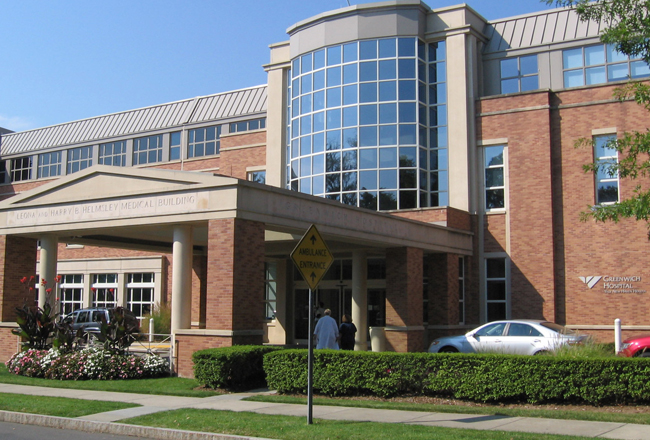For years, Len Fasano (R-North Haven) embodied the phrase “loyal opposition” in Hartford; it seemed rare for Democratic Gov. Dannel Malloy or his successor, Ned Lamont, to make a decree without hearing in turn from Fasano, who rose from minority whip in 2003 to Senate Republican president pro tempore in 2017, a post he held until his retirement this year.
 But if anyone thought Fasano”™s successor as GOP Senate Leader, Kevin Kelly (R-Stratford), would pose a lesser foil to Lamont, they should think again. Long an opponent of a state government-sponsored public health insurance option, which Comptroller Kevin Lembo and State Senate President Pro-tem Martin Looney (D-New Haven) have indicated will be raised again in the next General Assembly session, Kelly makes no bones about why he thinks that”™s a bad idea ”“ and why one-party rule, which state Democrats will continue to enjoy next year, creates “an echo chamber where they only listen to themselves” ”“ in this conversation with Business Journal Bureau Chief Kevin Zimmerman.
But if anyone thought Fasano”™s successor as GOP Senate Leader, Kevin Kelly (R-Stratford), would pose a lesser foil to Lamont, they should think again. Long an opponent of a state government-sponsored public health insurance option, which Comptroller Kevin Lembo and State Senate President Pro-tem Martin Looney (D-New Haven) have indicated will be raised again in the next General Assembly session, Kelly makes no bones about why he thinks that”™s a bad idea ”“ and why one-party rule, which state Democrats will continue to enjoy next year, creates “an echo chamber where they only listen to themselves” ”“ in this conversation with Business Journal Bureau Chief Kevin Zimmerman.
Congratulations on being selected the next Senate Republican leader. Even though the next session of the General Assembly doesn”™t begin until Jan. 6, what do you see as your party”™s legislative priorities going into 2021?
First and foremost is addressing the affordability of Connecticut, which is represented by a whole host of different factors. Health care is unaffordable, taxes are unaffordable. Republicans put forth a plan to make health care more affordable that”™s been sitting on the shelf for two years. We would reduce health insurance premiums by 20%, and keep high-paying Connecticut insurance industry jobs ”“ all of which would be protected by the Affordable Care Act, and therefore regulated by the Connecticut Insurance Department.
The Democrats”™ public option plan would put stat government in direct competition with one of our flagship industries, which would be backed by Connecticut taxpayers and will cost Connecticut insurance jobs. Since it would be classified as a government health care payment program, not insurance, it would not be regulated by the Connecticut Insurance Department and would not have the protections of the ACA. So you would end up with something that would be overseen by the whim of the Connecticut legislature and the comptroller”™s office.
The Democrats”™ plan treats insurance companies in a way where they”™re only involved to process claims. Two of the things that Connecticut does best is insurance and defense manufacturing. Why do away with one of things we do really, really well? Why would you want to chase them out of the state?
How do you view Connecticut”™s financial standing at this point, given the costs of the pandemic so far and the still-unknown costs yet to come?
In this day and age, we don”™t have revenue like we did, and we can”™t put more stress on the state budget. Recent reports have said Connecticut is dead last in job growth and dead last in personal income growth. Something like (the public option) is a bad proposal at a bad time.
There are 300,000 people in Connecticut without jobs right now ”“ that”™s way too many. And since most people get their insurance through their jobs, that just complicates the insurance problem even more. And that”™s the Connecticut Democrats”™ economy. They”™ve had a decade of dominance, but we”™re last in job growth and personal income.
One reason Connecticut is in a stronger fiscal position at the moment than most other states is our $3 billion rainy day fund ”“ and that exists because Republicans had a tie in the (state) senate in 2017-18. That was one of the Republican planks in the bi-partisan budget. If we hadn”™t had that tie, Democrats would not have those planks in their budget today.
But we”™re still looking at a $900,000 deficit in the current year and $3 billion the next. Fortunately, we got $1.4 billion in CARES Act funding from Washington.
But it”™s the same when you”™re doing your family”™s budget. If revenue is up, you keep the budget where it is. If revenue declines, you have to start making some choices. We have to adapt and make changes as our circumstances change.
How do you get your party”™s priorities through in the current environment, where you have a Democratic governor and, after this year”™s elections, roughly 2/3 of both the state senate and house controlled by Democrats?
One-party rule often becomes an echo chamber where they only listen to themselves. Our challenge is to find issues that affect everyone, like health care, and show the public a better way.
Since 2014, a recurring theme has been how people are concerned about health care. The average household premium is about two grand a month. That”™s very expensive and very difficult to meet. And Democrats haven”™t brought any relief, so when Washington didn”™t fund the ACA, premiums went through the roof.
The Republican plan would bring premiums down by 20% to around $400-500 a month. I believe that is something that will resonate with people.
As ranking Republican of the legislature”™s Aging Committee, and as an elder law attorney, you”™ve been understandably outspoken about how Connecticut”™s seniors have been treated during the pandemic. How do you see that evolving?
We have to make sure that protection for our seniors is there, as well as those with comorbidities and complicated medical situations. Even with vaccines on the horizon, we still have to get through this second wave and possibly a third wave.
We need to focus on the dignity and respect of individuals living in nursing homes. That”™s their home, that”™s where they live. And 90% of them are funded through Medicaid and Medicare. These are poor individuals, predominantly women, whose voice isn”™t being heard.
Presumably that won”™t be helped by the governor”™s saying he is considering extending his executive order granting immunity to nursing homes and hospitals from lawsuits, except in cases of “crime, fraud, malice, gross negligence or willful misconduct”?
Where is the accountability going to come from? This is a population that is in many cases critically ill, frail, and often suffering diminished capacity. They need help, because they can”™t advocate for themselves. They lost their eyes and ears when family visits were curtailed ”“ and I recognize that that was to fight against the spread of the virus ”“ but how do we protect these folks?
You can consider putting cameras into those facilities, but then you have to ask what about giving workers their privacy? It”™s okay to put a camera in your mother”™s home, but it”™s not okay if her home is in a facility?
Now we”™re following CDC guidelines for indoor visits, which has gone from 20-minute visits per week to half-hour visits per week. Connecticut is looking to Washington for guidance, when we should be looking to ourselves.
The Mathematica report found, among other things, that social isolation is as dangerous as Covid. It leads to depression, mental health decline, less optimism and weight loss ”“ all of which can contribute to being more vulnerable (to Covid).
We recognize that due to the pandemic we need to keep up with social distancing, using PPE, and reducing community spread, to bend the curve in order to protect our most vulnerable. But last spring, it became evident that 70% of Covid-related deaths were in nursing homes, and there is no plan right now to make sure that doesn”™t happen again.
In addition, a lot of these isolation rules were put into place back in March, when we didn”™t know much about the virus. Now we”™re seven months down the road ”“ have they learned nothing so we can have accountability if we”™re not allowing onsite visitors?
You”™ve outlined a number of disagreements you have with state Democrats and Gov. Lamont. How would you characterize your relationship with the governor?
I”™ve worked with him on various issues over the past couple of years. Since I became leader, we”™ve had some conversations. My hope is that the lines of communication will remain open. We don”™t always agree ”“ I don”™t expect for us to always agree ”“ but as long as discussions can be held in a candid and frank way, we can work together. He is open to dialog.
I realize this is probably not the ideal time to ask, but still: The 2022 election is growing ever nearer. Do you expect to be a gubernatorial candidate?
(Laughing) It”™s way too premature to think about that. I”™m still getting my feet under me (as leader). This is my focus right now.




















